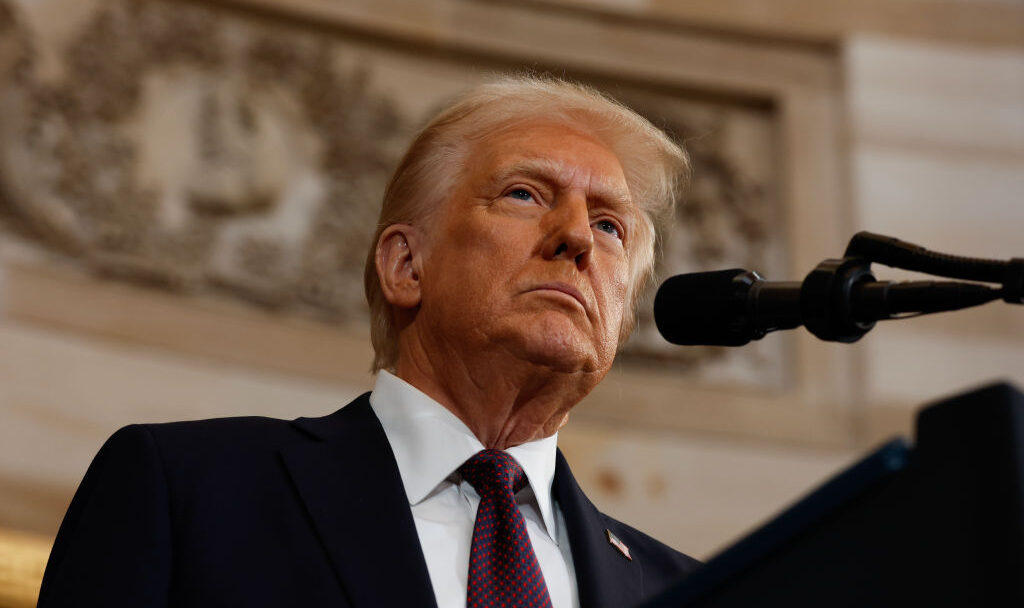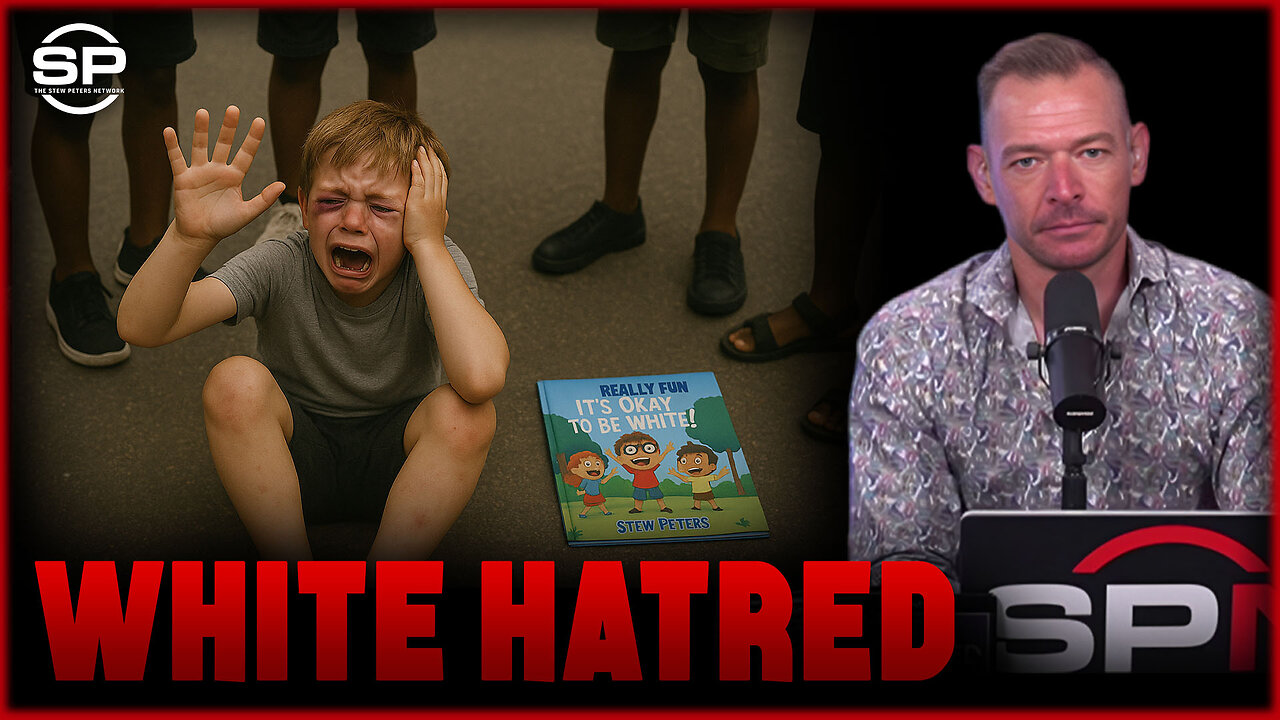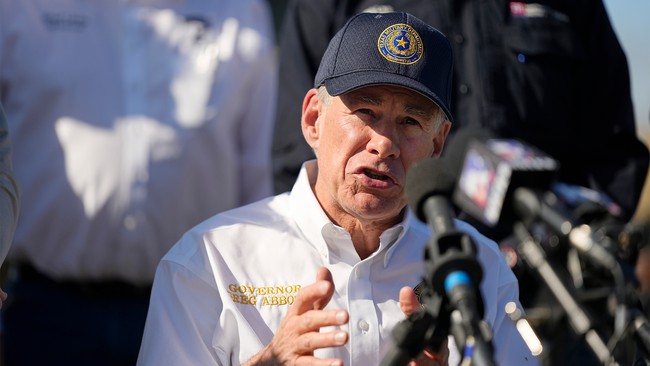
www.theamericanconservative.com
Trump Just Ended a War That Never Should Have Started
Foreign Affairs
Trump Just Ended a War That Never Should Have Started
The once-promising diplomatic path will be more difficult to walk in the aftermath.
(Chip Somodevilla/Getty Images)
On June 23, the United States helped to end a war that it helped to start and that never should have happened.
Catching almost everyone, including some top officials in the Trump administration, by surprise, Trump suddenly posted, “It has been fully agreed by and between Israel and Iran that there will be a Complete and Total CEASEFIRE!” Unheralded, the emir and the prime minister of Qatar reportedly played a key role in getting Iran to agree to the ceasefire.
But on the way to the diplomatic success, the U.S. had already bombed both international law and the Nuclear Non-Proliferation Treaty to smithereens, which is a large price to pay for a war that never needed to happen when a diplomatic solution that was on the table waiting for the details to be finalized.
The American bombing of Iran’s civilian nuclear facilities was an act of war that violated international law by attacking a sovereign nation that had neither attacked nor threatened to attack the U.S. without UN Security Council approval. It violated the Nuclear Non-Proliferation Treaty because, as a signatory, Iran was protected by the “inalienable right to a civilian [nuclear] program.”
“There are two ways Iran can be handled,” U.S. President Donald Trump had said, “militarily, or you make a deal.” But the undiplomatic language of threats was unnecessary, and the choice of the military way more so. The diplomatic path to a deal was wide open.
Diplomatic talks between the U.S. and Iran on Iran’s civilian nuclear program had surprisingly and encouragingly progressed through five rounds. Both sides evaluated the talks as having been positive. Iran’s Foreign Minister Abbas Araghchi said the fifth round of talks “has strengthened the possibility of achieving progress.” The U.S. called them “constructive” and said that “further progress” was made, although “there is still work to be done.”
The retired ambassador and former Iranian nuclear negotiator Seyed Hossein Mousavian said that he has been told by informed Iranian sources that “the key elements of the deal between [Trump’s special envoy] Witkoff and [Iran’s foreign minister] Araghchi were agreed upon.”
The deal had five key points. “Iran would accept maximum nuclear inspections and transparency,” including implementing the International Atomic Energy Agency Additional Protocol. Iran would either convert or export its stockpile of 60 percent enriched uranium. Iran would cease high-level enrichment and cap its enrichment at the 3.67 percent needed for a civilian energy program. And, finally, Iran would fully cooperate with the IAEA in resolving any outstanding technical ambiguities.
In return, Iran would be permitted to have its civilian nuclear program, and the U.S. would lift all nuclear-related sanctions.
Done. But then the U.S. demanded zero enrichment and a full stop to Iran’s peaceful, civilian nuclear program, and Trump demanded “UNCONDITIONAL SURRENDER!” Zero enrichment and a full surrender of Iran’s nuclear program was a well-known redline for Iran. American officials knew that Iran could never agree to zero enrichment; that demand could not lead to further negotiations but only to war. And that is what happened.
The failure to resolve the conflict with a negotiated deal is more tragic because concern over Iran’s nuclear program was still being successfully managed by the existing negotiated deal.
Despite the fact that in 2018, during his first term, Trump illegally and unilaterally terminated the JCPOA Iran nuclear agreement that had been successfully negotiated by President Barack Obama, Iran was still verifiably not building a nuclear bomb.
Consistent with the JCPOA agreement, when the U.S. pulled out, Iran was no longer bound by it. To maintain its leverage, Iran began enriching uranium well beyond levels agreed to by the JCPOA. But that decision could be reversed upon America’s return to their commitment, and Iran continually declined to build a bomb.
This is not just an Iranian claim. U.S. intelligence assessed, right up to the moment the bombs fell on Fordow, that Iran had not made a decision to weaponize its enriched uranium. The 2022 Department of Defense Nuclear Posture Review concluded that “Iran does not today possess a nuclear weapon and we currently believe it is not pursuing one.” The 2025 Annual Threat Assessment, which “reflects the collective insights of the Intelligence Community,” clearly states that U.S. intelligence “continue[s] to assess Iran is not building a nuclear weapon and that [Ayatollah Ali] Khamenei has not reauthorized the nuclear weapons program he suspended in 2003.” As recently as March, Director of National Intelligence Tulsi Gabbard testified that the U.S. intelligence community’s assessment was that “Iran is not building a nuclear weapon and Supreme Leader Khamenei has not authorized a nuclear weapons program that he suspended in 2003.” On June 17, the New York Times reported that “senior administration officials were unaware of any new intelligence showing that the Iranians were rushing to build a nuclear bomb.”
Despite alarmist warnings that Iran was a brief window away from being able to produce a nuclear weapon, CNN reported in June that the actual assessment of the U.S. intelligence community was that, even if Iran were to decide to pursue a nuclear bomb, they were “up to three years away from being able to produce and deliver one to a target of its choosing.”
And the IAEA agrees that there is no evidence that Iran has activated a nuclear weapons program. Iran has accused the IAEA of “biased” reporting on their nuclear activities that were weaponized and used as part of the case for the military solution to the Iranian nuclear problem. After the complaint, IAEA Director General Rafael Grossi clarified that “we did not find in Iran elements to indicate that there is an active, systematic plan to build a nuclear weapon. We have not seen elements to allow us, as inspectors, to affirm that there was a nuclear weapon that was being manufactured or produced somewhere in Iran.”
The greatest risk produced by the U.S. strikes on Iran is that they may have been the one thing that could push Iran toward pursuing a bomb. Iran had, for decades, forsworn the bomb on religious and legal grounds.
The New York Times has reported that “senior U.S. intelligence officials said that Iranian leaders were likely to shift toward producing a bomb if the American military attacked the Iranian uranium enrichment site Fordo or if Israel killed Iran’s supreme leader.” The former Russian president and deputy chairman of Russia’s Security Council Dmitry Medvedev listed it as a certainty, saying, “The enrichment of nuclear material—and, now we can say it outright, the future production of nuclear weapons—will continue.”
The American bombing tells Iran that, even if they are willing to sign an agreement that is on the table, committing them to capping enrichment at 3.67 percent and agreeing to an unprecedented inspection regime, the U.S. will bomb them with the biggest conventional bombs ever used in war. North Korea built a nuclear bomb as a deterrent to U.S. aggression, and no nuclear power bombed them.
Mousavian told CNN that the U.S. is “practically telling Iranians: get the bomb as the best deterrence. And I believe if these policies continue, Iran would go for a nuclear bomb.” “That’s why,” he told Democracy Now, “they are now thinking perhaps having nuclear bomb is much better deterrent compared to being member of NPT.”
Sina Toossi, senior non-resident fellow at the Center for International Policy, told The American Conservative that “far from neutralizing Iran’s nuclear capabilities, the war may have pushed Tehran closer to covert weaponization under a hardened doctrine.”
The JCPOA Iran nuclear agreement was working. U.S. intelligence and the IAEA continued to consistently assess that Iran has not made the decision to pursue a nuclear weapons program. And a new Trump deal with Iran had nearly been agreed on. The “military way” and the illegal bombing of Iran were not necessary and may, in the long run, make things a lot worse.
The post Trump Just Ended a War That Never Should Have Started appeared first on The American Conservative.










 Rumble
Rumble





